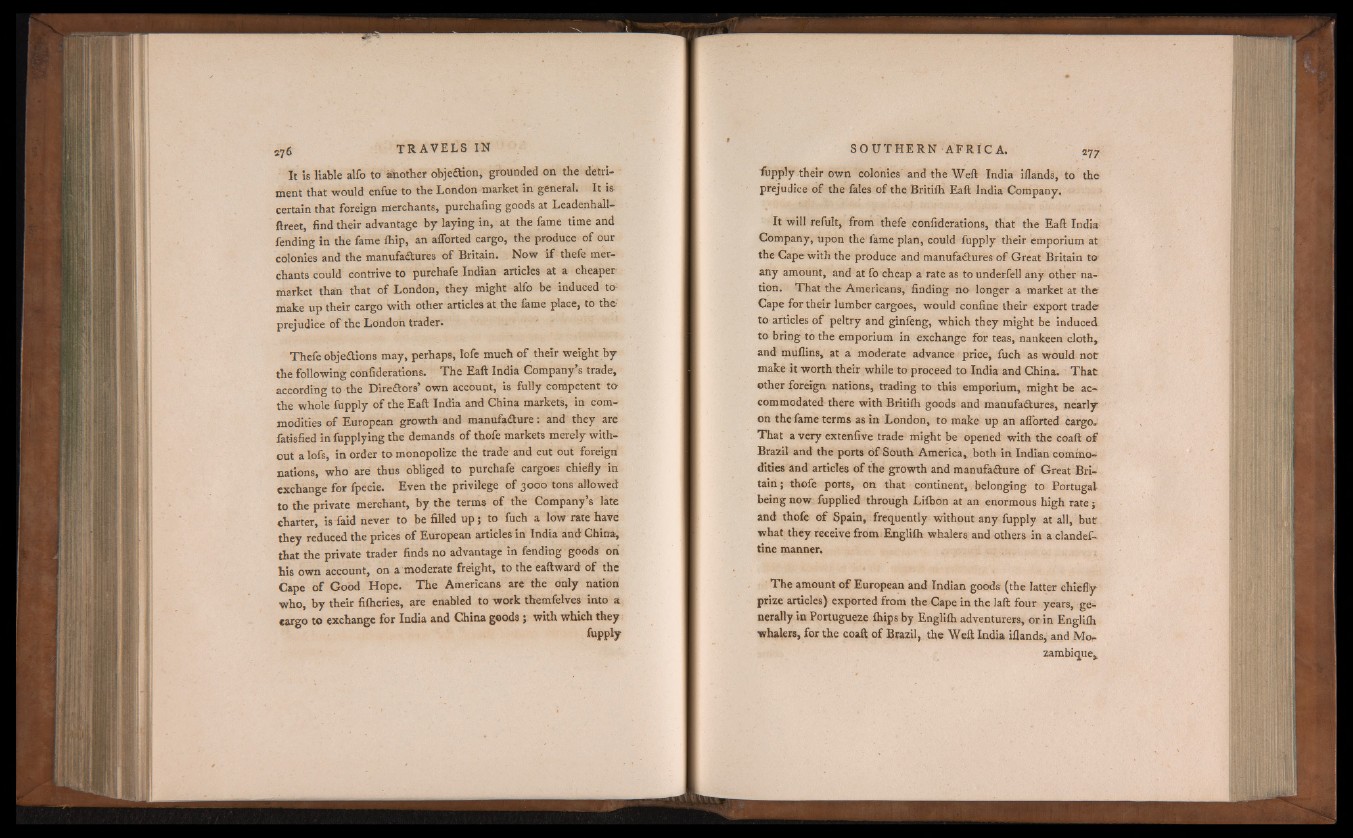
It is liable alfo to another objection, grounded on the detriment
that would enfue to the London market in general. It is
certain that foreign merchants, purchafing goods at Leadenhall-
ftreet, find their advantage by laying in, at the fame time and
fending in the fame ihip, an afforted cargo, the produce of our
colonies and the manufactures of Britain. Now if thefe merchants
could contrive to purchafe Indian articles at a cheaper
market than that of London, they might alfo be induced to-
make up their cargo with other articles at. the fame place, to the-
prejudice of the London trader»
Thefe objedions may, perhaps, lofe much of their weight by
the following confiderations. The Eaft India Company’s trade,
according to the Diredors’ own account, is fully competent to
the whole fupply of the Eaft India and China markets, in commodities
of European growth and manufadure: and they are
fatisfied in fupplying the demands of thofe markets merely without
a lofs, in order to monopolize the trade and cut out foreign
nations, who aré thus obliged to purchafe cargoes chiefly in
exchange for fpecie. Even the privilege of 3000 tons allowed
to the private merchant, by the terms of the Company’s late
charter, is faid never to be filled up; to fuch a low rate have
they reduced the prices of European articles in India and China,
that the private trader finds no advantage in fending goods oh
his own account, on a moderate freight, to the eaftwaid of the
Cape of Good Hope. The Americans are the only nation
who, by their fifheries, are enabled to work themfelves into a
cargo to exchange for India and China goods ; with which they
fupply
fupply their own colonies and the Weft India iflands, to the
prejudice of the fales of the Britiih Eaft India Company,
It will refult, from thefe confiderations, that the Eaft India-
Company, upon the fame plan, could fupply their emporium at
the Cape with the produce and manufadures of Great Britain to
any amount, and at fo cheap a rate as to underfell any other nation.
That the Americans, finding no longer a market at the
Cape for their lumber cargoes, would confine their export trade
to articles of peltry and ginfeng, which they might be induced
to bring to the emporium in exchange for teas, nankeen cloth,
and muflins, at a moderate advance price, fuch as would not
make it worth their while to proceed to India and China. That
other foreign nations, trading to this emporium, might be accommodated
there with Britiih goods and manufadures, nearly
on the fame terms as in London, to make up an afforted cargo-
That a very extenfive trade might be opened with the coaft of
Brazil and the ports of South America, both in Indian commodities
and articles of the growth and manufadure of Great Britain
; thofe ports, on that continent, belonging to Portugal-
being now fupplied through Lilbon at an enormous high rate;
and thofe of Spain, frequently without any fupply at all, but
what they receive from Engliih whalers and others in a clandef-
tine manner.
The amount o f European and Indian goods (the latter chiefly
prize articles) exported from the Cape in the laft four years, generally
in Portugueze flaps by Engliih adventurers, or in Engliih
whalers, for the coaft of Brazil, the Weft India illands, and Mozambique^